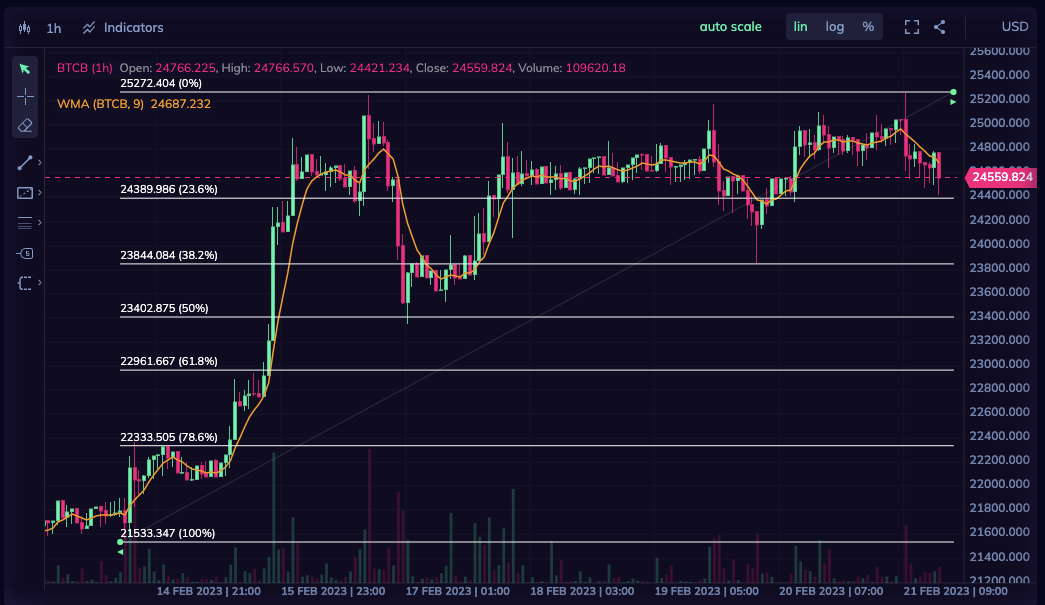Do Your Own Research (DYOR).
The phrase means that one should not blindly believe what they are told, but instead, they should investigate and gather information to form their own opinion.

Do your own research is a phrase that has become increasingly popular in recent times, especially in the era of the internet. The phrase means that one should not blindly believe what they are told, but instead, they should investigate and gather information to form their own opinion. In this article, we will explore the definition of the phrase, its history, how to do your own research, examples, interesting facts, and what you need to know about it.
Definition
To do your own research means to gather information and data on a particular topic, subject or idea. The information can be obtained from various sources such as books, journals, newspapers, academic papers, and online platforms. The purpose of doing your own research is to form your own opinion or conclusions based on the evidence you have gathered, rather than relying on the opinions of others.
History
The concept of doing your own research dates back to ancient times. The Greek philosopher, Socrates, encouraged his students to question everything and think for themselves. In the 17th century, philosopher John Locke introduced the concept of empiricism, which emphasizes the importance of sensory experience and observation in the formation of knowledge. In modern times, the idea of doing your own research has become more prevalent with the advent of the internet and the availability of vast amounts of information.
How to do your own research
To do your own research, there are several steps you can follow:
- Identify the topic or question you want to research.
- Start by gathering background information on the topic from general sources such as encyclopedias or textbooks.
- Formulate a research question or hypothesis that you want to explore.
- Gather information and data from primary and secondary sources, such as books, journal articles, and online databases.
- Evaluate the sources you have gathered to determine their reliability and relevance to your research question.
- Analyze the data and information you have collected to form your own opinion or conclusion.
Examples
Doing your own research can be applied in various fields. For instance, in politics, doing your own research involves gathering information on a candidate's policies, track record, and personal values, rather than relying on what the media says about them. In medicine, doing your own research means understanding the benefits and risks of a particular treatment or medication before making a decision. In science, doing your own research involves conducting experiments, analyzing data, and drawing conclusions based on your findings.
Interesting Facts
- The internet has made it easier to access vast amounts of information, but it has also made it easier for misinformation to spread.
- Doing your own research can help you develop critical thinking skills and become a better problem solver.
- In 2020, the phrase "do your own research" became a common response to conspiracy theories and misinformation related to the COVID-19 pandemic and the US presidential election.
What you need to know
Doing your own research requires time, effort, and critical thinking skills. It is essential to gather information from reliable sources and evaluate the credibility of the sources. Doing your own research can help you become more informed, make better decisions, and form your own opinions. However, it is important to keep an open mind and be willing to adjust your opinions based on new evidence. Doing your own research is a valuable skill that can be applied in various aspects of life, from personal decisions to professional ones.
In conclusion, the phrase "do your own research" emphasizes the importance of thinking for oneself and gathering information from reliable sources to form one's opinion. The concept has been present throughout history, and the internet has made it easier to access vast amounts of information. By following the steps outlined in this article, you can learn how to do your own research and become a more informed and critical thinker.
Doing Your Own Research on the Crypto Market
Investing in the crypto market can be a daunting task, especially if you are new to the world of cryptocurrency. Doing your own research is essential if you want to make informed investment decisions. In this article, we will discuss how to do your own research when investing in the crypto market.
Understand the Basics of Cryptocurrency
Before you start investing, it's essential to understand the basics of cryptocurrency. You need to learn how cryptocurrencies work, what blockchain technology is, and the various types of cryptocurrencies available. This knowledge will help you make better investment decisions and understand the risks involved.
Choose a Reliable Crypto Exchange
Choosing a reliable crypto exchange is crucial for the success of your investment. Look for an exchange that has a good reputation, is secure, and has a user-friendly interface. You should also check if the exchange is regulated in your country and what fees they charge for trading.
Research the Cryptocurrency you want to Invest In
Research the cryptocurrency you want to invest in thoroughly. Look at the technology behind it, its market cap, the team behind it, and its potential for growth. You should also look at its historical price data and market trends to get a better idea of its price volatility.
Follow Industry News and Trends
Following industry news and trends is essential when investing in the crypto market. Stay up to date with the latest developments, new technologies, and regulatory changes that can impact the market. Join online communities, follow influential people on social media, and read reputable publications to stay informed.
Diversify your Portfolio
Diversifying your portfolio is a sound investment strategy that can help mitigate risk. Invest in a mix of different cryptocurrencies to spread your risk and maximize your returns. This way, if one cryptocurrency performs poorly, the others in your portfolio can offset those losses.
Keep Track of your Investments
Keep track of your investments by using a portfolio tracker. This tool can help you monitor your investments' performance, keep an eye on the market, and make better decisions based on your portfolio's data.
In conclusion, doing your own research is essential when investing in the crypto market. You need to understand the basics of cryptocurrency, choose a reliable crypto exchange, research the cryptocurrencies you want to invest in, follow industry news and trends, diversify your portfolio, and keep track of your investments. Remember, investing in the crypto market carries significant risk, and it's important to invest only what you can afford to lose.
You can check the prices of your tokens at Dexer.io
Learn how to invest in crypto projects:




